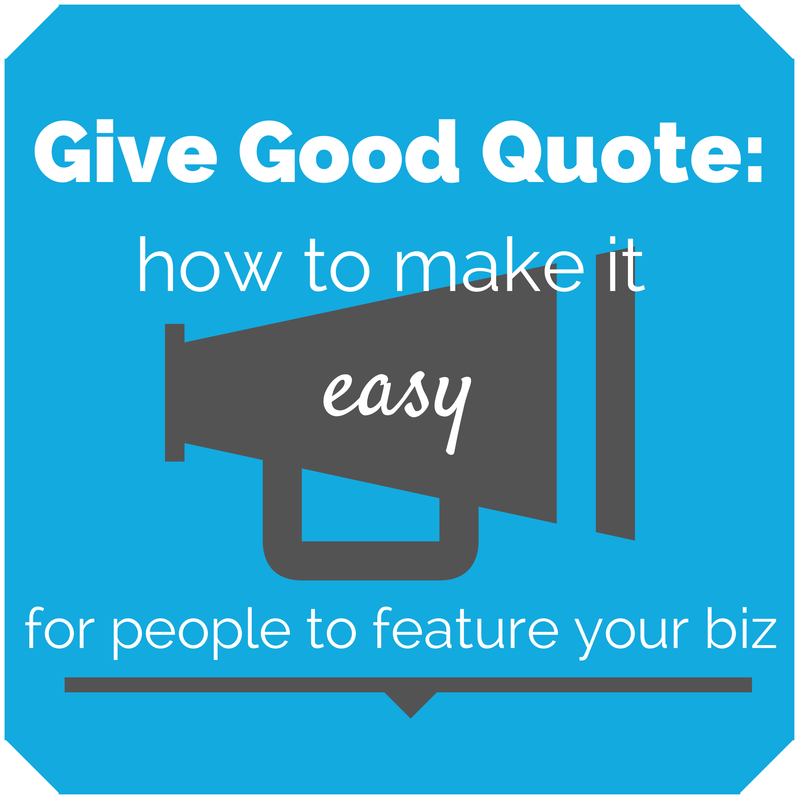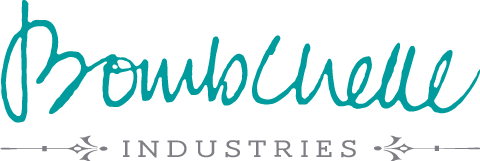

Not only have I been quoted at a couple of pretty awesome places as a resident expert and managed to get in Entrepreneur magazine last year, I have also worked HARO from the other side in getting quotes to use for articles at Grasshopper or KISSmetrics.
You know what I can tell you?
Most people are doing it wrong.
I have got emails (on more than one occasion) that made me scrunch up my face and say out loud to the computer, “I WANT TO QUOTE YOU. PLEASE DON’T DO THAT.”
That is probably not the reaction you want someone to have when they’re considering writing about your business.
But it’s okay, because you won’t when you know better. Which you will, when you finish reading this post.
Want to improve your pitches and make it super-easy for people to feature your business? I’ve got three don’t’s, three do’s, and an example for you:
Don’t give a too short answer
Answering a question is kind of an art. I understand, I do. But at the same time, people tend to reply to a query or question with either too short answers or too long answers – and too short or too vague is worse, because if a writer likes the quote, they can pull the information they need for the article from a longer quote. If it’s less than 50 words, it’s probably too short.
Another phenomenon that happens under this category is, “I’d be a great fit for this article because (reason). Email me if you want more info.” No, I will not, because I’m busy and you’re wasting my time.
(And if you’re a PR person trying to get press for your client like this, then unless your client is someone really impressive, your chances of getting a reply are next to zero.)
Don’t give a too long answer
For the love of all things good and holy, don’t just respond with a wall of text. To write about you and your business, someone does not need to know everything about your business and personal history.
Instead, look at the question they asked. Answer that. As quickly as possible. Oftentimes there will be a maximum word count listed, because sifting through emails that look like this:
“Hi how are you my name is John and I started my business in 2005 with my ten years of widget making experience and…[insert 300 words here] …so that’s why I tried event marketing and it worked okay.”
Makes people stabby. Real stabby. And surprisingly, people can manage to write an excessively long email reply that doesn’t actually include the information requested. Don’t do that.
Don’t be slow to reply if they need more info
This is pretty simple: people are on deadlines. For the Grasshopper event marketing post above, someone replied that actually had a really interesting example of Twitter parties as online event marketing. I replied back asking for specifics and…didn’t get a reply for four days, at which point, the article was already in the hands of the editor.
Obviously, you can’t watch your email inbox every moment of every day, and you certainly shouldn’t for your own productivity’s sake, but if you’re actively pitching reporters and trying to get coverage of your business, you do need to respond in a timely manner if they need more information.
Do be specific
Writers love statistics. And they hate vague comments. If you’re vague in your response, chances are you won’t get quoted, because unless there’s something about you that is really, really intriguing (and it’s hard to be intrigued when you’re sifting through 50+ replies), it’s going to seem like more work than it’s worth to reply back with questions and then wait for answers.
Give me:
- numbers of what worked and what didn’t and by what measure it worked or didn’t work
- industries you’ve worked in or helped clients in
- specific tactics you did (see below)
- the how of your inspiration or strategy
Do give actionable tips
Readers like takeaways. They really, really like them. When you put actionable takeaways into your quote, you make it that much more likely that you’re going to get quoted, because any writer worth their salt would much rather quote someone who says, “Our business hosted a local meet and greet for people in our industry and then followed that up with an educational webinar. Doing this monthly as a marketing tactic raised our revenue by 120% in one quarter,” than someone who says “I used event marketing to grow my business 120% in one quarter.”
There’s a big tie in here with specificity, obviously, but you can be specific without being actionable, as the above example shows. Both things are crucial for a great quote.
Do include everything they need in a copy-and-paste friendly format
Not just the quote, obviously, but include:
- a link to your headshot
- your Twitter username if they request it (honestly, it can’t hurt to include it either way)
- a short bio
- if applicable, a link to where they can find out more about your take on the topic (assuming you didn’t write a grievously short reply, it’s totally acceptable to say “I wrote more about this here” and include a link)
Assuming you sent them a quality pitch, this gives them everything they need to go ahead with the article without any further input from you, which is ideal from their POV.
An example:
For the marketing automation post at KISSmetrics, I put in this query to HARO:
Has marketing automation hurt or helped your business?
Do you use tools to automate your marketing? Has that helped or hurt your business? Looking for firsthand stories from business owners that have either experience a rise in profit and customer satisfaction after automating their marketing, or experienced those same benefits after stopping automation of your marketing. The article will have an emphasis on customer satisfaction and retention, so I’m specifically looking for stories dealing with those facets of business/sales. Please include details – statistics, if possible (i.e. a 25% increase in sales or retweets, a 55% increase in customer satisfaction), what kind of business you run, your name, and what site you want linked back to.
I got a lot of crappy pitches on this one, but Jordhy‘s was great:
Good morning,
In response to your HARO query: Marketing automation has increased my company’s sales by at least 60%. At first, I was very opposed to automating our direct mail efforts. I wanted to hand craft each letter for our potential business clients. However, after running some test campaigns the cycle became very clear to me: you start by sending industry-specific communications and then, when interested parties contact you, the pitch can be hand-crafted just for those clients.
All and all, we now reach more clients and have better conversion rates. Customers are more satisfied because they don’t have to talk to a salesman over the phone when they don’t want to. It all boils down to picking the right type of automation for your business.(name, site, and contact info was here)
This is what he did right:
- he gave a specific statistic
- mentioned a way that they used it specifically (which had a clear tie in with my article) that could be turned into an actionable takeaway
- everything I needed to attribute was in his signature
- when I replied asking 1-2 follow up questions, he replied in 24 hours or less
It’s basically everything I mention above in action. That, my friends, is how you get quoted.
